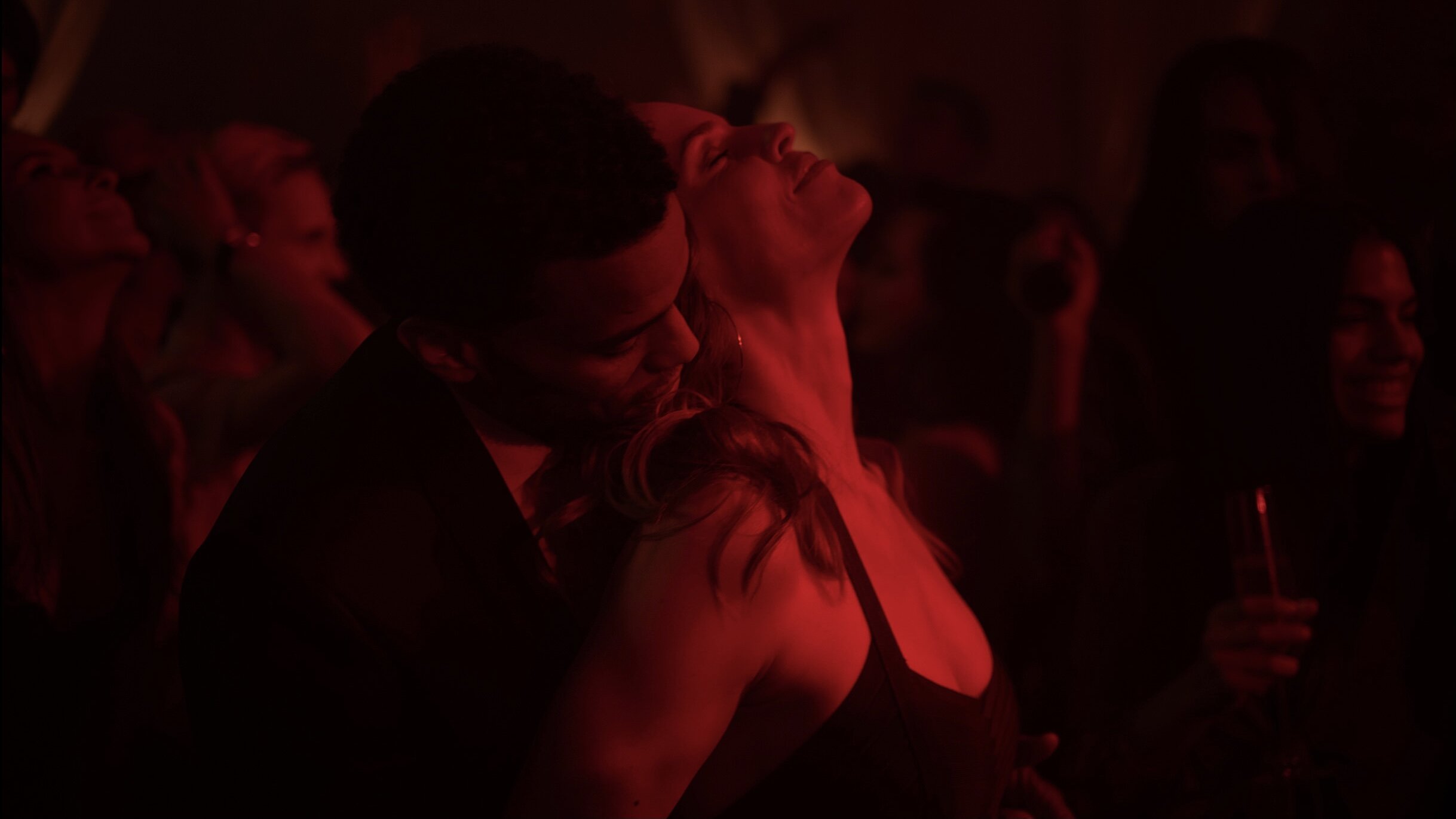Film Review — "Fatale"
Few things irritate me more than a timid movie. I mean, if you’re going to be an erotic thriller, be sexy. Also, if you’re going to be an erotic thriller, it wouldn’t hurt to be, I dunno, suspenseful. For a film with so many opportunities, Fatale plays it entirely too safe. The film repeatedly hints at the issue of racism in policing without ever fully tackling it, preferring instead to dance around the topic in favor of labored plot twists. Basically, director Deon Taylor and screenwriter David Loughery’s follow-up to their middling 2019 thriller The Intruder plays out about as one would expect it to. Because, once again, this team seems hesitant to commit.
I cannot tell if the movie’s hands are tied or if the filmmakers were truly determined for their project to exist in the abstract. Fatale is an independent film, although it admittedly does not look like it. Producer Roxanne Avent was working with a seven-figure budget, and she successfully spent their dollars in all the right places to give off the impression that this picture was a modest studio production. You’ve got two high-profile stars. You’ve got expensive-looking sets. You’ve got sleek lighting courtesy of Dante Spinotti. All these things, but no guaranteed distribution. So, with return on investment in mind, perhaps Taylor went for the broad appeal approach.
Some critics, maybe even Taylor himself, might call that subtlety or under the radar. And, in a way, sure… The potential is certainly there. The ideas are certainly there. But, in what appears to be a concerted effort to not beat the audience over the head with themes, Taylor watered down his film’s bite and thusly rendered the narrative bland. Because even on a textual level, Fatale lacks intrigue. You’re likely to get just as much out of the film if you dial the volume down to zero and just take in the pristine images.
Fatale might be the most LA-lensed movie I’ve seen in weeks. The anamorphic glass brings a classic yet modern vibe to each wide shot. So many of the frames have a music video quality, which works for Taylor’s surface-level approach to the material. Spinotti of course paints with shadows and gels where he can, but that sadly does not make up for Taylor’s absent grit. Everything is clean, very digital. Pretty but not substantive. Now, I’m not a cinephile who thinks that celluloid is inherently superior, but adding some texture to the visuals may have at least given off the impression that this story has some layers. Instead we’ve got a very blemish-free aesthetic.
Matching the film’s steely style is Hilary Swank’s too-austere performance. Look, I want the best for Swank, I really do. She’s a phenomenal actress whose résumé does not reflect the fact that she has two Oscars. To be perfectly frank, she’s better than most of the movies she’s in, and unfortunately this outing is not an exception. I won’t claim that she was miscast, but she was definitely misdirected. In Fatale, Swank is too restrained to be menacing, too serious to lean in, and too collected to crackle. She’s practically as dull as the plot itself, which is a huge bummer, because Swank is due for a renaissance. Sources say she’s pretty good in The Hunt, which I have not gotten to yet, so as of this moment The Homesman remains the last time I left a theater thinking that Hilary Swank really delivered in a film that deserved her.
Swank’s mostly contained portrayal of Detective Quinlan still manages to outshine Michael Ealy, somehow. Ealy is gorgeous, first and foremost. He has a movie star allure and a face that was chiseled for the sole purpose of gracing the illuminated movie posters outside the multiplex. When another character in the film told him that he had “Steph Curry eyes and Jesus of Nazareth hair,” I nearly died. Beyond his attractiveness, this Derrick Tyler role, on paper, provides Ealy with a range of emotional and physical situations to show off his acting chops. But, like the film as a whole, he is far too earnest. It’s truly disappointing how… not compelling he is. That might not be entirely Ealy’s fault, however, because a Fatale through line seems to be an unwillingness to dig.
Fatale is a letdown in nearly every regard. In terms of subject matter, it’s not hot enough to be steamy; it’s so tepid that I’m not altogether confident this even qualifies as an erotic thriller, come to think of it. Thematically, it will not ruffle any feathers; Deon Taylor opted to avoid every flavor of controversy, and I guess as a business decision that tracks. He made his movie so safe for a general audience that maybe syndication was really the goal all along. This is a flick that I could easily see broadcasting repeatedly on TNT or entering the coveted rotation of features that air on VH1 after RuPaul’s Drag Race. In fact, very little would need to be cut for television, considering how mild it already is. It sucks how, for a movie with so many possible destinations, Fatale contentedly chooses to go nowhere.





